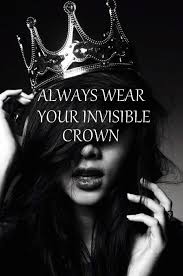
Warm weather is the end of the winter of my discontent. I flourish in sun but not so much the winter rains of my home in the San Francisco Bay Area.
My pessimism doesn’t trump my optimism during winter but it slices and dices into me easier as if I mirror the storms.
Like the winter breakthrough days of sun and sitting outdoors and thinking, “Ah, life is all good, all the time.”, I move from one microclimate of my soul to another.
I am the middle of the roader in the genetic lottery. As I write this (aware that new information comes rapidly and by the end of my sentence I may be out of date) science tells us that three types of genes determine our level of optimism/pessimism.
The first gene has two long alleles. With this you win the genetic lottery: life is always great, problems are easily overcome, the future is unknown but never bleak. Another has two short alleles and with this one you are more likely to see the glass half empty and joy will be more fleeting. The third is one of each allele, and as you might expect, it falls between enduring happiness and pessimism.
This is mine. I kiss joy and happiness as they fly into my life never knowing how long they will stay and knowing their counterpart will one day be there, but it too, I merely welcome and wait for the darkness to leave. I know as sure as the sun will rise that sadness is not my constant companion, nor joy. They are my visitors and I make my peace with each.
But sometimes life stressors become huge and in spite of our genes we get ill from the stress. Last year I found myself more pessimistic than normal. I tried to work out of it, but it didn’t work. Welcome illness. How did I spend my time? Why looking at the positive side: this is a chance to learn and so I found myself researching every website I could find about this, reading ebooks, pubmed citations, contacting researchers.
In 2006 The New YorkTimes Magazine had an article on childhood abuse and the impact of alleles on how much resilience a child exhibited. Not surprisingly the winners of the genetic lottery were more resilient and had done better over the long term in measures such as education, income and relationships.
WHAT PREDICTS HAPPINESS THE BEST
But all is not lost for the short alleles or those of us with one of each. The most powerful predictor of happiness is not the length of our individual alleles, but strong social support. Life’s problems increase our need for social support. This means we have a responsibility to one another: we must listen to one another.
Listening is called witnessing in many contexts. A person who listens to your pain has witnessed you suffer and become a part of your story. When someone validates your experience you then feel, “I am not crazy, it really is wrong for my husband to bully me, it really is wrong for my boss to tell me I am a bitch, it really is wrong for my attorney to quit the day before we go to court.” Unless you are heard, you become angrier, more panicked and less able to confront the issues with a calm demeanor.
People who actively listen actively respond. They might say, “I went through that. It’s awful. I understand why you feel so bad. Tell me more so I can see if I know anything or anyone to help you.” This kind of active listening provides validation and proposes action for the future. This is a support person.
We may or may not need formal support people. You don’t always need a professional when you have friends who practice active listening. As positive psychologist Chris Peterson liked to say, “Other people matter.”
When we act as if this is true, we can bring the value of the alleles down. They will not be as important as the environment. When it comes to your friends, you are the environment. Nature vs nurture won’t be determined in one interaction, but over a lifetime, if we surround ourselves with those that care, and give it back in return, we can savor who we are and let the alleles fall where they may.
Other people matter.